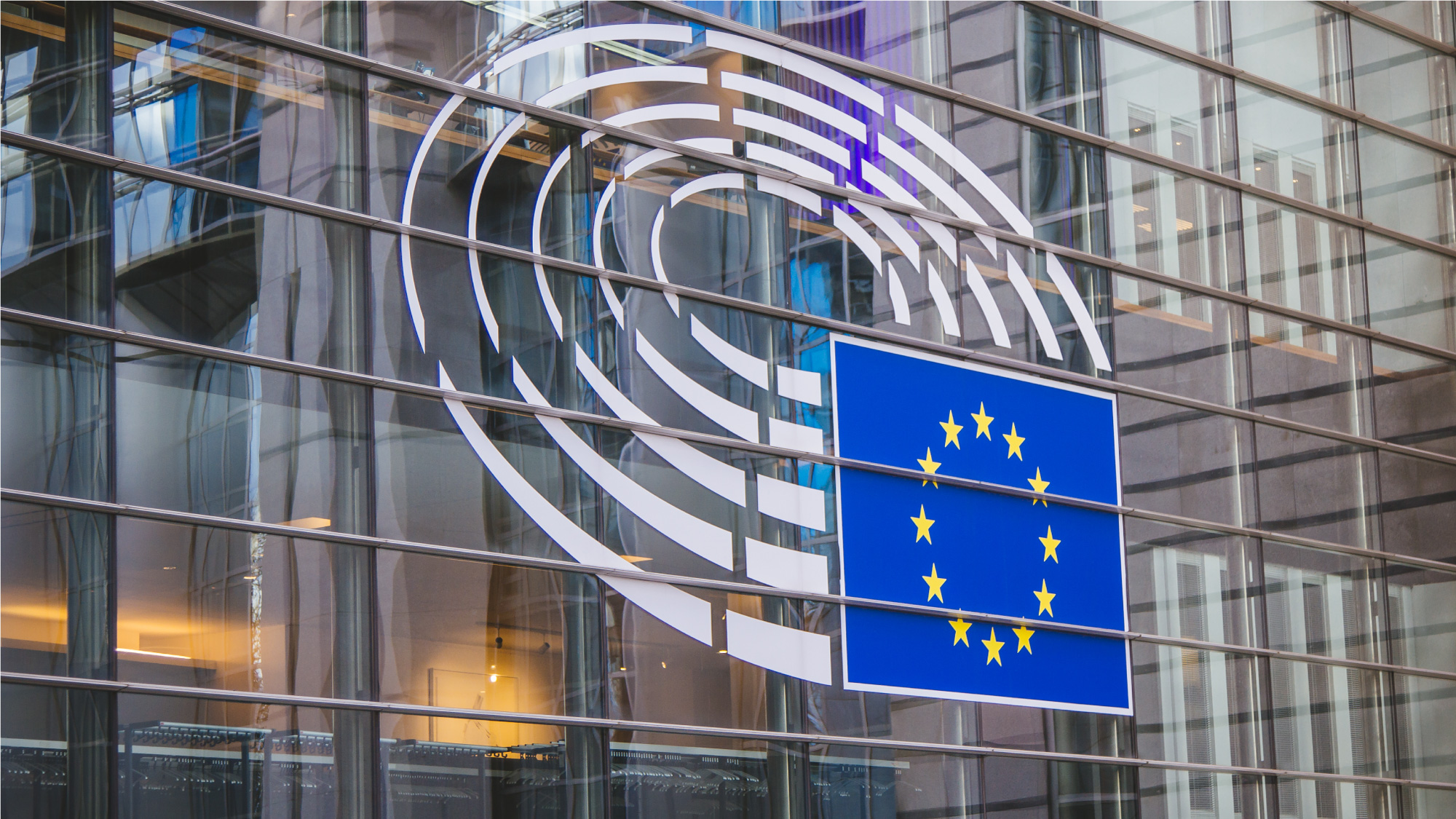
New wins
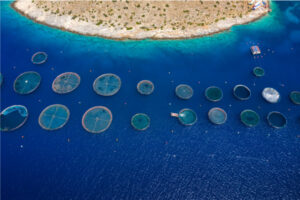 Tetra Tech selected to carry out mid-term evaluation of the European Maritime Fisheries and Aquaculture Fund (EMFAF)
Tetra Tech selected to carry out mid-term evaluation of the European Maritime Fisheries and Aquaculture Fund (EMFAF)
We are evaluating the European Maritime Fisheries and Aquaculture Fund on behalf of the European Commission’s Directorate General for Maritime Affairs and Fisheries (DG MARE). The purpose of this 10-month study is to assess the fund’s potential to support sustainable fisheries, marine biodiversity and the EU’s blue economy.
Our team will engage with programme managers, industry stakeholders and target groups to understand their initial experiences with the fund. The results will be discussed in a workshop with national government representatives, experts, and European Commission officials in June 2024.
 Mid-term evaluation of the Instrument for Financial Support for Border Management and Visa Policy
Mid-term evaluation of the Instrument for Financial Support for Border Management and Visa Policy
Our team is providing the Directorate-General for Migration and Home Affairs (DG HOME) with research that supports the assessment of a wide range of topics, including migration, border management systems, security, visa policy, law enforcement cooperation, crisis management and how this all links to the European asylum system.
Over the 15 months of this study – which we conduct as part of a consortium together with EY and Fondazione Brodolini – our expert evaluators will be in close contact with a wide array of stakeholders from across the European Union.
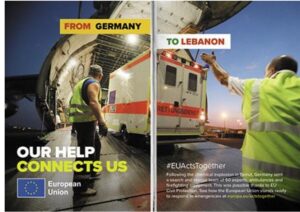 Evaluating DG ECHO’s external communication policy and actions
Evaluating DG ECHO’s external communication policy and actions
Tetra Tech has been contracted to analyse the communication activities of the Directorate-General for European Civil Protection and Humanitarian Aid Operations (DG ECHO) between 2019 and 2023. With the EU being one of the largest humanitarian aid donors in the world, DG ECHO assistance helps to preserve life, prevent and alleviate human suffering, and to support civil protection after a disaster in Europe and around the world.
Over the course of six months, we will be conducting a meta-analysis of existing gaps in the DG ECHO’s communications approach, which will give insights into the current effectiveness and efficiency of activities and provide precise and practical recommendations for the future.
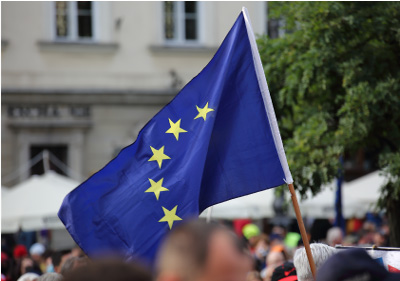 Framework wins
Framework wins
We are further pleased to announce that Tetra Tech has been selected as a consortium partner on the following frameworks:
- On the European Commission’s Directorate-General for International Partnerships (DG INTPA) Framework Contract Services for EU External Actions, Monitoring (Lot 15); and
- On the Directorate-General for Taxation and Customs Union (DG TAXUD) framework, Lot 1 to support better regulation-related services in the fields of customs and taxation
Discover our latest publications
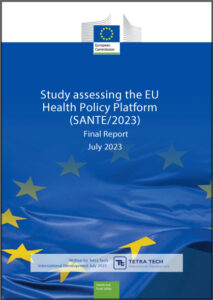 Assessing the EU Health Policy Platform
Assessing the EU Health Policy Platform
This was the final report of our team’s study, in which we provided robust evidence about the use and functioning of the EU Health Policy Platform for the European Commission’s Directorate-General for Health and Food Safety. The study involved extensive desk-based research with consultations with moderators and users of the Platform, including EU, national and local health stakeholders.
The findings confirmed the continued relevance of the Platform, both in terms of alignment with EU health policies and initiatives and addressing the needs of health stakeholders. The Platform is most effective as a space for health stakeholders to exchange information with European Commission services, in particular with DG SANTE.
The full report is available here or by clicking on the image to the left.
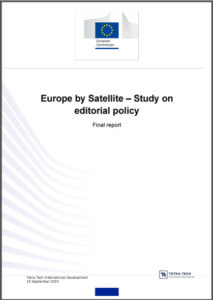 Exploring Europe by Satellite
Exploring Europe by Satellite
In this study, our team gathered insights into the use of Europe by Satellite, the European Union’s TV and video information service which provides journalists and media professionals with EU-related pictures and sound.
This gave the European Commission’s Audiovisual Service a better view on the use of their service, and will support the updating of the editorial line for the Europe by Satellite service, including decisions on which type of material to continue or discontinue broadcasting.
You can read the study here or by clicking on the image to the left.
 Evaluating the EEA and Norway Grants
Evaluating the EEA and Norway Grants
Tetra Tech led the Evaluation of Competitiveness in Business Innovation Programmes for the 2014-2021 Financial Mechanism of the EEA and Norway Grants. In this evaluation, we considered how the Business Innovation programmes funded by the Grants contribute to increased value creation, sustainable growth, and the competitiveness of private enterprises, as well as the general objectives of the Grants, such as reducing economic and social disparities, and
strengthening bilateral cooperation.
Irina Jefferies, Senior Consultant on Tetra Tech’s EU Evaluation & Research team, presented the results of our evaluation at EFTA House in Brussels earlier this year.
Follow this link to read and download the report.
Sharing our expertise
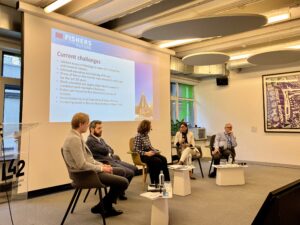 Who are the fishers of the future?
Who are the fishers of the future?
We were pleased to be presenting first findings of our Fishers of the Future study at a kick-off event of the European Commission’s Directorate-General for Maritime Affairs and Fisheries (DG MARE) in Brussels earlier this month.
In his opening remarks, DG MARE’s Deputy Director General Kęstutis Sadauskas welcomed fishers and stakeholders from public and private sectors and highlighted the importance of the study, which aims to examine the role of fishers in society by 2050.
 Tackling digital addiction
Tackling digital addiction
The discussion on smartphone use is highly topical. As part of our assessment of the digital fitness of Directives to support consumer protection, we developed a case study on digital addiction for European Commission’s Directorate-General for Justice and Consumers.
In this case study, we examined attention-capture dark patterns – mechanisms such as autoplay, pull-to-refresh, infinite scrolling, Non-Fungible Tokens (NFTs), in-app or in-game purchase and gamification that can exploit users’ psychological vulnerabilities to maximise time spent and daily visits and can lead to problematic behaviour.
We further adapted a model for the development of non-addictive digital tools to assess the extent to which the European Commission’s Consumer Rights Directive, Unfair Commercial Practices Directive, and Unfair Contract Terms Directive (“the Directives”) are fit to protect consumers from developing digital addiction issues.
The work was a crucial contribution to understanding where the Directives, other EU legislation and national legislation already intervene in digital addiction development, and where there is scope to include specific rules in the Directives.